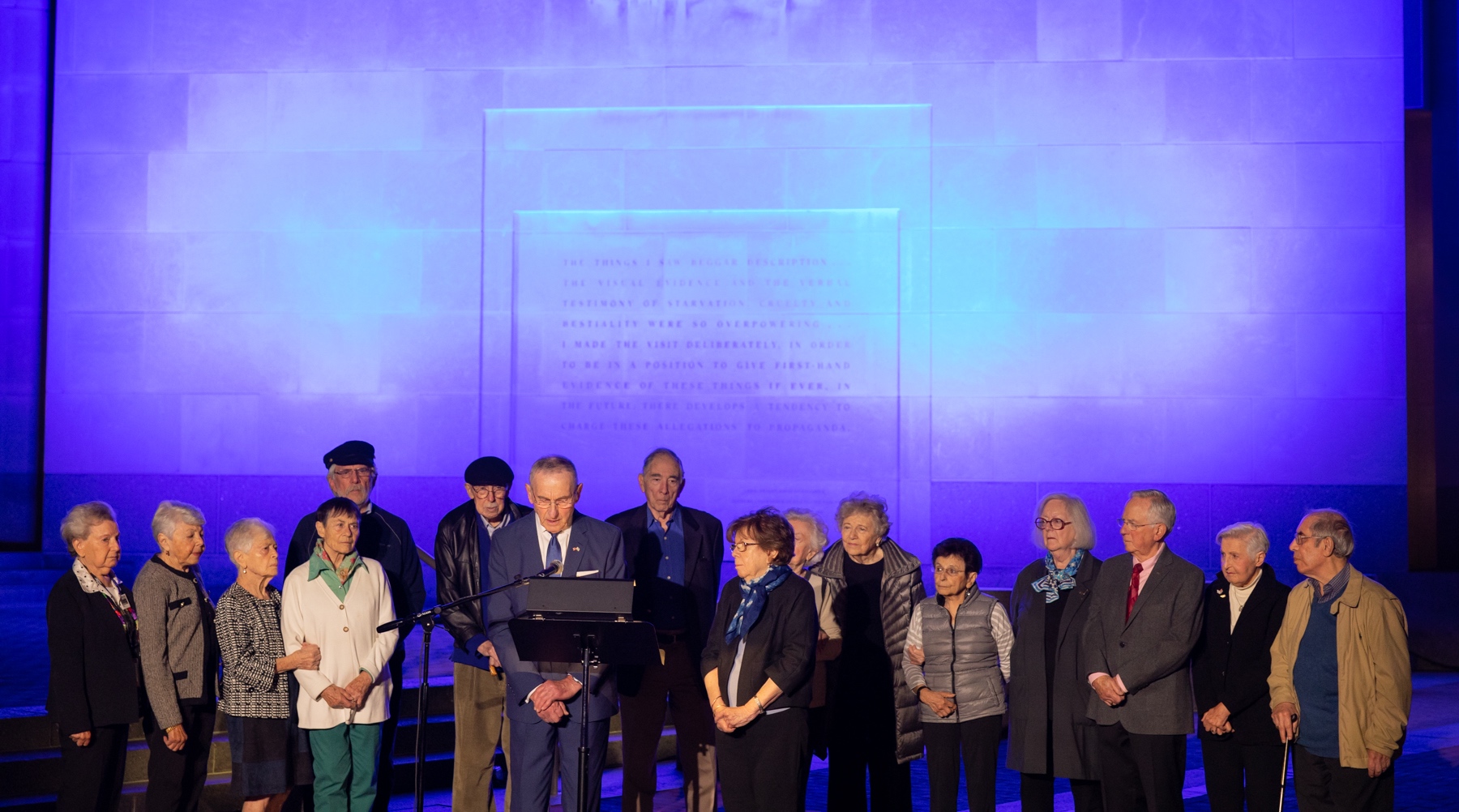WASHINGTON (JTA) — They spend their days telling students and tourists about the horrors they witnessed as children. They didn’t expect to see them play out again 80 years later.
Fifteen Holocaust survivors who volunteer at the U.S. Holocaust Memorial Museum locked arms for photos in front of the museum, which for one night on Wednesday was lit up in the colors of the Israeli flag, what has in recent days become a popular symbol of support for Israel as it reels from the killing of at least 1,200 people in Hamas’s invasion, which started Saturday.
Two survivors stepped forward and read aloud a letter the volunteers had put together.
“We are always gratified to see how much interest there is from young people from every part of the world,” said Dora Klayman, 85 who survived the Holocaust in what is now Croatia. “To hear their comments and questions gives us hope for the future. Today, as we see the murderous destruction in Israel, that hope is dimmed.”
Nat Shaffir, 85, who survived the Holocaust in Romania, took over.
“This is not what we expected in this final chapter of our lives, as we contemplate our legacy, the future of Holocaust memory and education, and the future of our people,” he said.
“We thought that they had a very special message to the world that would carry different meaning than any other organization,” said Sara Bloomfield, the museum’s director. “And we gave them this opportunity to express their voice.”
David Schaecter, the president of the Florida-based Holocaust Survivors’ Foundation – USA issued a similar statement earlier Wednesday. “The barbarity of the Hamas attacks indeed remind us that hatred of the Jewish people, and the infinite capacity for cruelty against our people, is a cancer that will never be eradicated, but must be recognized, protected against, and crushed when it threatens our people,” said Schaecter, 94.
At the museum, after they were done, the small band of survivors asked museum staff for help in calling rideshares and stood in the brisk October evening exchanging pleasantries.
Ruth Cohen, who survived the Holocaust in Hungary and what was then Czechoslovakia and who was deported to Auschwitz, waved back toward the podium and the building bathed in light blue.”Speaking that was wonderful,” Cohen, 93, said referring the recitation of the letter. “But it’s a terrible, terrible situation.”
In January, she had traveled to the United Arab Emirates to mark International Holocaust Remembrance Day, one of the first times the commemoration was observed in the Arab world. That gave her hope, she said, and it persists. “Even through this, what’s happening.”
Asked what she thought of when reading about the events in Israel, Cohen said, “My life.”
JTA has documented Jewish history in real-time for over a century. Keep our journalism strong by joining us in supporting independent, award-winning reporting.






